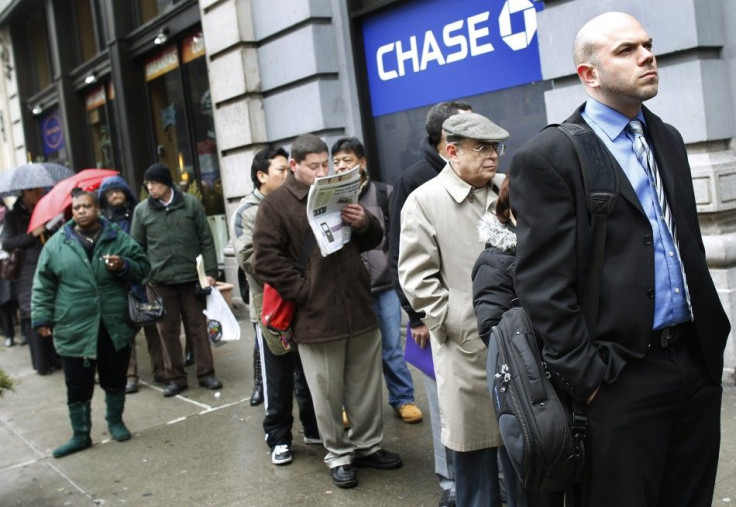Top Five Reasons for High Unemployment in US

The U.S. unemployment rate fell sharply to 9 percent from 9.4 percent, the Bureau of Labor Statistics (BLS) said last week. However, the positive news hasn't brought much cheer to the millions who are out of jobs, some for more than a year.
Though the official version, and most of the media, paints a rosy picture, the reality on the ground is vastly different, with people finding it ever harder to find jobs, according to many observers. Some even say the BLS unemployment figures are an eyewash.
They wonder if the economy is really getting better and the job market is looking up, or whether the government is forcing optimism on the people by projecting the sunny side up.
Economist John Williams of Shadowstats.com said the BLS' claim that a gain of 36,000 in the payrolls reported last week was a statistical lie.
Greg Hunter of the USAWatchdog quotes Williams: “Incredibly, despite ongoing regular overstatement of payrolls by the BLS, the BLS appears to have upped, not lowered, the excessive biases in its latest rendition. Without the higher bias, the reported January 2011 payroll gain of 36,000 would have been a decline of 52,000.”
As for the big drop in the unemployment number down to 9%, you can credit that with something the BLS calls “seasonal adjustments,” says Hunter.
Here's what Michael Snyder of Daily Markets has got to say about the real unemployment scene in the country: It now takes the average unemployed worker about 33 weeks to find a job. There are millions of Americans that have not been able to find a full-time job even after searching hard for an entire year.
He says the economy is dying and its' not just creating enough jobs for the people.
Snyder has listed out some reasons why the job market is entirely hopeless. Some of those are the following:
1. Fewer new openings: Post-crisis, the number of new job openings in the country crashed to below 3 million jobs whereas there used to be 4.5 million new openings before it.
2. Lack of real growth: The economy is gripped by chronic lack of real growth. A measly 36,000 jobs were added in January whereas economists have concluded that at least 150,000 new jobs are needed to keep up with the rise in population.
3. Government sector layoffs: Government sector jobs, which are considered the safest, are becoming a dangerous option as state and local governments are continually cutting jobs.
4. Chinese job grab: China is taking away U.S. jobs in hordes. Unbelievable cost advantages in China, thanks to its ultra low labor costs, are moving thousands of jobs into China and away from the U.S. each year. Plus, the bulging trade deficit is slowly eating up the U.S. economy as hundred s of billions of dollars are going to the rest of the world.
5. High taxes. Snyder says businesses pay more taxes in the United States than just about anywhere else in the world. This means many businesses are literally pushed out of the country, and with that, jobs too vanish.
© Copyright IBTimes 2024. All rights reserved.





















